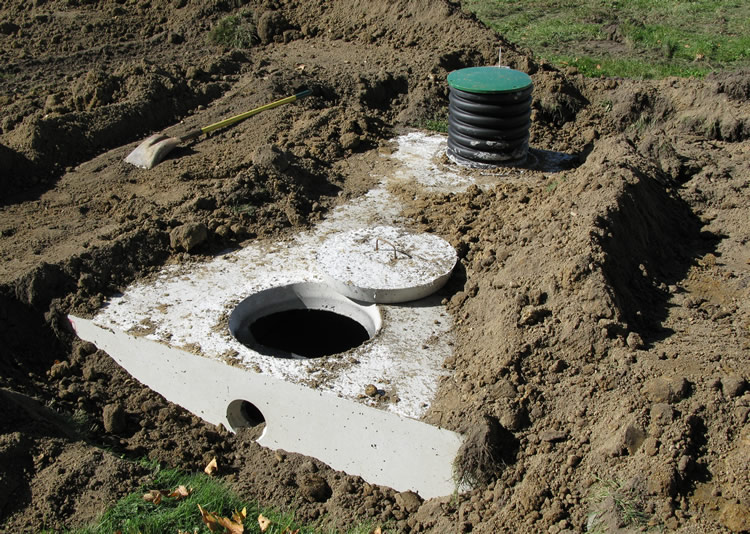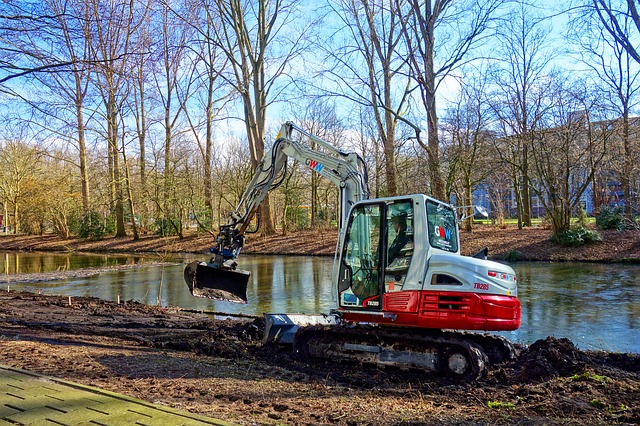
Demolition is typically the first step in a construction project. The demolition process includes the demolition of the existing structure, the disconnecting of current services, and the inspection for safety hazards. Before a demolition can begin, a permit must be secured from the local authority.
A drainage ditch can be installed around your property. This will allow water to be discharged into an irrigation ditch or storm drain.
The cost to install the septic tanks varies according to the type of tank and the size of your home. The total cost of the system includes labor costs, which can range from 50% to 70%.
To dig the trench, you will need a trenching device. One can either rent or buy one. The cost of renting a trencher will vary depending on where you live. A trencher skilled enough to handle a trenching chain of 10" or 12" width can be used.
However, this isn't the only thing an excavating contractor does. He also moves dirt around a property, which may not seem like much, but it is an important component of a construction project.
This can also include excavation and test drilling to make sure your building has the best foundation. Site preparation requires expertise. The right team will ensure that your project is completed in a short time. They can also minimize mistakes and delays. It is important to get your site ready in order to ensure your building has a long lifespan.
In the early months of the year, before snow accumulations start to occur, it is the best time to call snow removal contractors. This gives you an opportunity to review several bids and narrow your search.
Plus, they are knowledgeable in local soil conditions and can advise on the best course of action for a project. Hiring an excavation contractor ensures that the job is completed according to industry standards and regulations. Thus, you can be sure that your project is executed properly and efficiently.
When you think about having new construction done on a property, you may ask, "What does an excavation contractor do?" Whatever type of job you have in mind, there are some common procedures that a contractor can perform. This includes foundation waterproofing, foundation installations, commercial excavating site preparation, demolition and even snow removal.

There are many methods to remove concrete. But the best choice for your situation will be based on your requirements. This depends on how big the project is and how large the concrete. If you only want to remove a small chunk of concrete, you will only require a few tools such as a jackhammer, and a wheelbarrow.
Demolition can be a time-consuming and complicated process. An experienced demolition contractor can help plan your demolition project and keep it on track.
Site preparation can be a complex process and requires skilled professionals. A team of skilled professionals can make sure your project runs smoothly and minimizes the chances of errors or delays. Your building's life expectancy can be extended by getting your site ready.
Another part of site preparation is to create a solid foundation for your new home. This can be done by leveling the land and excavating.
French drains can help protect basement from flooding. The drain will last decades if installed properly. You should be aware of several things before you install the drain.
There are many products to waterproof your home. You can choose from several membranes like polyurethane sheets and bentonite. Manufacturers may recommend using a combination.
They ensure a smooth flow of water through the project site and help prevent flooding. Overall, excavation excavators help create beautiful projects that enhance the lives of people around the world.
Furthermore, it is essential to ensure the excavation takes place at the correct depth. You must place the tank at least three to four feet from any structure. This will prevent flooding and seepage.
However, excavating contractors do more than just move dirt around a property. Although it may not seem important, an excavating contractor also moves dirt around a property.
Secondly, ask for referrals from family, friends, and colleagues who have worked with excavation companies in the past. This is a great way to get honest feedback about a contractor’s level of service and quality of work. Additionally, do some research on the contractor or company’s credentials and qualifications to ensure that they are qualified to handle your project.
The excavation contractor will work in accordance with general contractor instructions, making sure that the site is ready to be constructed. They will dig trenches to prepare the site for utilities such as gas and electricity. They will clear the site and protect any sensitive artifacts.

The most important thing to inquire about is the price. Prices for snow removal services will vary depending on the type and size of the driveway as well as the equipment used. There may be additional charges for snow removal on sidewalks.
It is important to determine the amount of snow on your property in the winter. What type of equipment do you need? It all depends on how much snow your property gets. Consider a snowplow if you have large commercial sites. Clearing snow and ice from large areas can be difficult using a shovel.
If you are planning to hire an excavation contractor, you will need to find out if he or she is licensed. You should also check whether he or she is experienced. The best way to find an excavator is by interviewing several pros. Then, you can select the company that best suits your needs.
Concrete is one of the hardest materials to remove once it's in place. To do it properly, you'll have to hire a professional. They'll use their expertise and tools to break up the slab and cart it away. Depending on the project size, it could take a few days to complete. The average cost to remove a slab of 200 square feet is $2,600.
A demolition company can also assist with the process. This is a great way of preparing a property to build a new home, or a driveway. They can also improve drainage and the overall property system. Professional contractors will help you to keep your construction project on schedule and within budget.
If you're planning to build a home in an area that floods, it is crucial to have a drainage ditch. You can also drain water from your basement to keep it from pooling.
Site preparation involves many tasks. This can involve removing trees and clearing out large amounts of debris. The process can include the demolition of existing structures and the removal of underground infrastructures, depending on the location. Test drilling and excavation can be included to ensure the best foundation possible for your building.
A protective board is also included in foundation waterproofing systems. This protects the elastic coating. These systems may be applied by hand, with a trowel, or with a hammer.
Snow removal contractors are best contacted in the early season, before snow accumulates. This gives you the chance to compare offers and narrow your search.
Concrete is one the most difficult materials once it's in its place. Professionals are required to properly do it. Their expertise and tools will be used to break down the slab and move it away. It might take several days to complete depending on the size and complexity of the project. On average, a 200-square foot slab is removed at $2600.
The concrete footing and foundation walls are covered with a waterproofing membrane. To prevent water from escaping the foundation, the membrane can be connected to a perimeter drain system.

Consider other snow removal tools as well. You'll save both time AND energy by choosing the best snow-removal equipment.
If you plan to build a house in an area that is susceptible to flooding, a drainage ditch will be necessary. A drain can also be installed in a basement to prevent water from pooling.
There are many products to waterproof your home. You can choose from several membranes like polyurethane sheets and bentonite. Manufacturers may recommend using a combination.
Demolition can prove to be dangerous. Safety is a priority. Demolition projects can be costly. If asbestos or lead are needed, it may increase the project cost. It is important that all hazardous materials be removed before demolition can start. This will increase cost and time.
The best time to hire an excavator is during the local offseason, typically late fall or early spring. This is when excavation contractors have lower workloads and can extend discounts for services. Before hiring a contractor, make sure to interview several professionals and check their past work and references.
